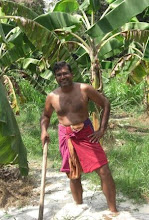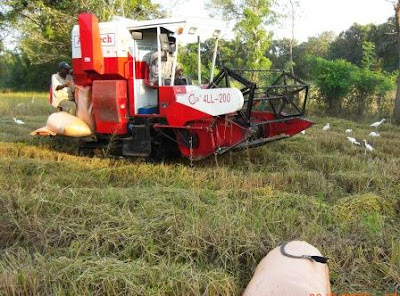
The arguments carry on and it is a highly politicized and emotive subject. Bearing in mind that Sri Lanka is shortly to assume a GNP per capita of US$4000 (target 2015) that is at current exchange rates Rs500,000 for every man woman and child in this country of over 20million we must take a different and futuristic view.
The politicians maintain we are now self sufficient in Rice production in Sri Lanka and with the news we were to give Somalia food aid in the form of Rice as our stores are bursting, is another feather in the propaganda cap of the government. The fact that our stores cannot prevent spoilage and rodents is another matter.
The reality is somewhat different. We subsidize the heavy use of imported, chemical fertilizer to the tune of over Rs50B a year to produce this rice and self sufficiency. The flip implies that if the govt. did not subsidize then many will not grow rice and therefore we may have to import rice. The other increasingly important point to consider is the high cost of labor as mentioned in the first paragraph, added to which is the scarcity of labor, both of which WILL impact severely in this drive to preserve self sufficiency and also increase exports, the latter being another objective of the government.
Due to the subsidy it does not require a rocket scientist to remind us that if we sell a kilogram of rice for Rs60 to an overseas buyer before freight and insurance, the govt by way of subsidy has already chipped in Rs20 as that is the subsidy. Otherwise the seller has to receive Rs80 for the same profit. That is bad economics. The photos show my efforts at paddy production in my paddy fields and one can see for oneself how inefficient the small-holders paddy production really is. The cost of labor will prevent me from carrying out a profitable operation in the future unless I go hi-tech using many labor saving measures, which can only be productive on paddy production on a much larger scale, implying that 90% of Rice grown in Sri Lanka is not cost effective, and is exploiting the inefficiencies and the perpetuation of poverty in Sri Lanka.
This analysis of the continuation of the status quo only to permanently keep people mired in poverty is not sustainable in the long term and steps must be taken now to predict this problem and avoid the unintended consequences. In my case I can improve my costs only by the following method. I must farm my property, along with that of my neighbor for a minimum extend of 10 acres or 4 hectares. I require earth moving dozers to grade the land and make large fields so that large 4 wheeled tractors can operate, and I am sure I can cut the cost of production in half.
The state’s continual policies of land distribution amongst landless, its ownership rules and restrictions with regard to sale of land and the archaic thinking that is now outdated all contribute to this fallacy that we are a land of farmers, dependent on farming for a living. The electoral politics where land is a highly emotive subject all contribute to the politicians who exploit these prejudices at the expense of taking people out of poverty and into a new thinking to ensure the survival of the rural family as an economic unit. We must give them the tools to get themselves out of poverty.
I have not touched on the very poor management of water resources, which I have been pointing out in my blog for a while, which also plays a major role in this argument. When a person farms a much larger extent using the latest techniques, then one is much less prone to waste water and is ablt to manage water. I have pointed out how in my irrigation canal, the farmer ahead of me diverts water to his plots and lets excess water flow out into the river, when I am starved of water to my fields, using the lame excuse that they are taking advantage of the water that they have been allowed by the way the canals have been laid out. Actually letting the excess water flow into the river is itself wasteful as with it flows some of the soil nutrients, but in his pig headed way is not open to another opinion, thinking it is just a means of exploiting him and his electorally won rights!!
The old techniques of transplanting have now completely been abandoned due to the cost of the exercise, but the lack of use of technology in this area leads substantially both to yield loss, as well as the high incidence of weedicide usage which could easily be prevented by transplanting methods which do not give weeds as much of a chance to take off, with mature plants having a headstart in being able to suffocate the possibility of weed seeds being germinated.
Getting back to the point of self sufficiency, exports of rice, and the fertilizer subsidy, they all need to be studied together to obtain an optimum equilibrium so that we are able to maximize on our comparative advantage in utilizing our most productive lands for the most productive purposes, instead of the wholly unsatisfactory use of existing agricultural lands that barely produce yields that can sustain farming families despite the fertilizer subsidies which are meant to increase productivity. I will not go into the need for renovating the water retention capacity of our irrigation tanks a subject I have written about on numerous occasions but which are all part of the same issue in being able to get the optimum out of our land without harming the soil, loading it with permanent damage from the over use of chemicals, and outdated farming practices that all contribute to environmental damage, all for no lasting benefit.









